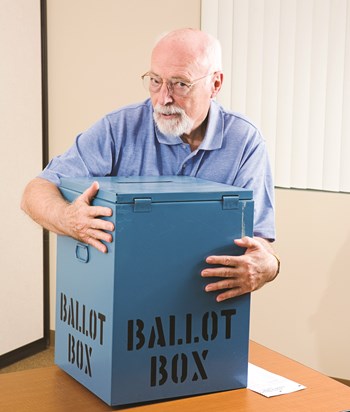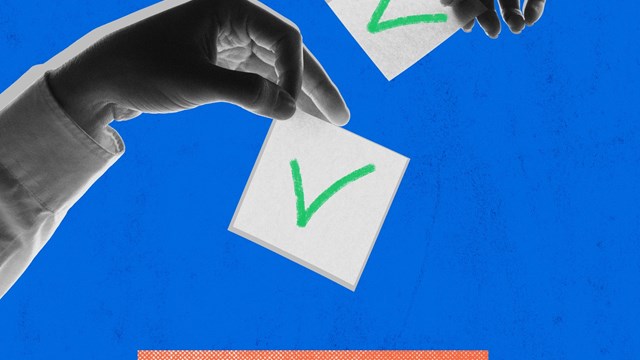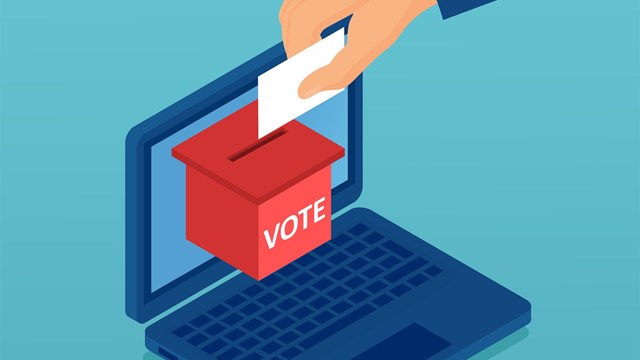
Los Sueños—a 13-building, 396-unit condominium complex on Hialeah’s west side—takes its name from the Spanish word for 'dream,' but the outcome of its November 2015 owners’ association board election was a nightmare. Although each unit had one vote, a total of 457 votes was cast—somehow, the complex had mysteriously gained 61 additional units...and the entire election was now highly questionable.
The Miami Herald reported that half the votes were thrown out, including 174 duplicates. The losing candidates complained to the state agency that regulates common-interest communities: the Division of Florida Condominiums, Timeshares, and Mobile Homes in the Florida Department of Business & Professional Regulation (DBPR)
The Los Sueños situation is a droplet in a rising tide of complaints about condo election fraud and other administrative irregularities all across the state. According to The Miami Herald, the Division in 2015 received 1,908 such complaints statewide, of which 566—almost 30 percent—came from Miami-Dade County. We wanted to ask what civil or criminal penalties might apply in such cases, but no one at the Division responded to our request for comment. Under Florida law, falsifying a signature, or in this case, forging an election ballot, would be a third degree felony punishable by up to five years in prison and a fine of $5,000, according to the Herald.
Criminal Convictions
“Punishment against individual directors is rare. I am not aware of any criminal cases prosecuted in Florida,” says Lisa A. Magill, an attorney who is of counsel to the Kaye Bender Rembaum law firm in Pompano Beach and a Fellow of the College of Community Association Lawyers. That's not the case elsewhere; recent cases in Pike County, Pennsylvania, and Las Vegas, Nevada, have indeed resulted in criminal convictions.
At Wild Acres Lakes, a private community in the Pocono Mountains near Dingmans Ferry, Pennsylvania, the board’s chairman and secretary tried to rig the 2014 election by filling out blank ballots for people who generally don’t vote in elections. They were thwarted by the community’s manager, who contacted the district attorney’s office and the state police.
Both men were charged with forgery, identity theft, criminal attempt, criminal conspiracy, tampering with records, and criminal use of a communication facility. The secretary was convicted on all 217 counts, the chairman on 190 counts.
The Las Vegas case involved fraud in the repair of construction defects in homeowners’ association buildings. Leon Benzer, owner of the Silver Line Construction Company, used straw buyers to purchase 37 units in 11 HOAs, place occupants in them who seemed board-eligible, and helped those occupants win elections using forged ballots.
Then, these 'captive' boards hired preferred vendors, including Benzer’s company and a law firm with which he conspired. Benzer pleaded guilty in 2015 and received a 15½-year prison sentence. Of 38 other defendants in the case, 35 received lesser sentences and three died before sentencing.
Rules Vary
In Florida, three sets of rules apply to board elections. Condominiums (Chapter 718 of the Florida Statutes) and cooperatives (Chapter 719) have “very rigid procedures for administering their annual elections,” says Eric M. Glazer, founding partner of the law firm Glazer & Associates, P.A., in Ft. Lauderdale and Orlando. “At least 60 days before, the association must send out notice of the annual meeting, and ask if anyone is interested in running for the board.”
Up to 40 days before the election, unit owners who want to run must file a notice of intent, after which they have five days to prepare a candidate-information sheet for the association to send to all unit owners. That distribution occurs at least 14 days before the election, along with a ballot listing the names of the candidates in alphabetical order.
The traditional voting method involves paper ballots. “The unit owner checks off his choices, and puts the ballot in an inner envelope marked BALLOT ONLY,” Glazer explains. “That envelope is then placed into a larger envelope that the unit owner must sign. On the night of the election, the signatures on the exterior envelope are verified and the votes are counted.”
If the number of candidates and the number of board seats to be filled are equal, all candidates are seated and no election takes place.
For HOAs, the legislature hasn’t passed specific procedures or requirements. “The rules for conducting an HOA election are whatever the governing documents say they are,” says Glazer. “To complicate matters even more, proxy voting is allowed in HOA elections, but not in condo and co-op elections.”
Committing Fraud
Election fraud in a common-interest community may take many forms. “Devious minds are more creative than you may imagine,” Magill says.
“The most common types of fraud usually involve forging signatures on ballots, stuffing ballot boxes, and discarding ballots when the outer envelopes reveal the name of someone whose vote is not desired,” says Donna DiMaggio Berger, a shareholder with the law firm of Becker & Poliakoff in Ft. Lauderdale. “The skills needed to undertake any of these activities are not terribly high. The average teenager is fairly adept at forging a signature, and it takes little effort to throw away a ballot.”
Glazer describes election-fraud cases in which owners who wanted to run for election were deliberately not given notice of the annual meeting. “In HOAs,” he says, “the proxies can be fraudulent. Often, boards simply fail to count votes cast by owners, claiming they are delinquent and not allowed to vote, despite the fact that the board never properly terminated the person’s voting rights.”
At the opposite extreme, he says, “A warning sign is when the participation rate in an election is normally 30 percent, and then suddenly doubles.” Participation in an election by bank-owned or abandoned units is another indicator,” Magill adds.
In cases of duplicate ballots, “Owners (or other interested persons such as vendors and employees) can invalidate legitimate votes, bolstering their chosen candidates’ chances of success,” Magill says.
“Voter intimidation is likewise a factor, particularly with older folks,” Magill continues. “Owners are sometimes ‘bullied’ into assigning their proxy (or handing their ballot with a signed outer envelope) to a strong member, employee, or vendor out of fear of retribution or with the hope of special treatment. Community-association boards and management can make living conditions uncomfortable to unbearable for residents.”
Magill says money and/or power drive most of the election machinations. “I frequently hear that issues or violations associated with the president’s best buddy are overlooked,” she says. “Sometimes there is a desire to cover up other wrongdoing. Community associations are big business. Hundreds of millions of dollars of contracts are let every year, and vendor selections are too often based on who you know rather than what you know.”
Reporting Fraud
If election fraud is suspected in a common-interest community, “a board member should report his or her suspicions to management and the full board of directors at an open meeting, ask the association to engage in a verification process, and make an effort to ensure that those comments as well as an explanation of any promised remedial efforts are cited in the minutes from that meeting,” Magill says.
“Managers and association employees are unfortunately often caught in the middle. There may be adverse repercussions if they report any irregularities or expose ‘bad’ practices. Nonetheless, these individuals should report to the full board at an open meeting and prepare a report that is retained by the association. “
In co-ops and condos, Magill says, owners who don’t control the election process can demand answers to written inquiries furnished to the association via certified mail.
Berger notes that the official election records must be retained for a year and are subject to inspection. If an owner is thwarted in an attempt to view the records, “That may be a red flag,” she says, “but an owner whose request is granted may not know what to do with the records.” She advises hiring an experienced attorney to review them.
In addition, Glazer says, anyone questioning a common-interest community election can contact the Division, which receives and may investigate complaints from condo and co-op owners. For HOAs, owners can file an arbitration case.
He notes, however, that any election challenge must be initiated within 60 days after the results are announced. “Often, people wait too long to challenge the election and they become time barred,” he says.
The Electronic-Voting Alternative
In 2015, The Florida Legislature authorized electronic voting for common-interest communities (see 718.128 for condos, 719.129 for co-ops, 720.317 for HOAs). The legislation is designed to streamline the election process, but “electronic voting is not as easy or as simple as writing either ‘yes’ or ‘no’ in an email and clicking the ‘send’ button,” wrote attorney Lisa A. Magill in a 2015 blog posting.
She emphasized the need for advance preparation to ensure that the online election happens smoothly. The board of directors must adopt a resolution to implement electronic voting, get the consent of individual owners, authenticate each owner’s identity, ensure the secrecy and integrity of each ballot, and test to confirm that each owner’s electronic device communicates correctly with the system. Then the system itself must authenticate the voter and the vote, send the voter a receipt, separate the voter’s identity from the vote, and store the votes so they are accessible in the future.
Becker & Poliakoff recently became the first Florida law firm to offer online voting software for community associations. “Anyone can use it,” says Donna DiMaggio Berger, a B&P shareholder. “Associations purchase a right to use, and clients of the firm enjoy a 53 percent discount.
“The skillset needed to hack into a computer system and interrupt an online ballot in transit is obviously much higher than most association members possess, which makes online voting more attractive for many communities,” she says.
Another benefit, Berger says, is that “many associations in Florida have a significant percentage of members who live out of state or out of the country for a portion of the year. As such, online voting can mean the difference between those owners previously disenfranchised and now able to play a meaningful role.”
The system needs no download. Owners go to the website, www.BPBALLOT.com, to cast their votes. Their association sends a list of eligible voters, the names of the candidates, and their information sheets. Each owner receives a unique PIN number. Everything is traceable to an Internet Protocol (IP) address.
Another vendor offering electronic voting to Florida’s common-interest communities is the Honest Ballot Association. Based in Floral Park, New York, the elections tabulating company was started by Theodore Roosevelt in 1909. HBA rents electronic touch-screen voting machines and offers online software to a wide variety of groups nationwide, including community associations and labor unions. Third-party certification to verify the results is available. “We handle all details of the election process,” says Linda Gibbs, president.
In a recent Century Village election, close to 400 people voted by touch-screen in two hours, Gibbs says. “As soon as the polls closed, we began the tally and gave the results within a half hour.”
George Leposky is a freelance writer and editor living in Miami, Florida, and is a frequent contributor to The South Florida Cooperator and other publications.






4 Comments
Leave a Comment